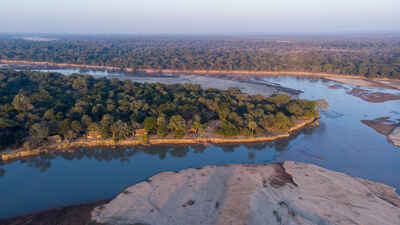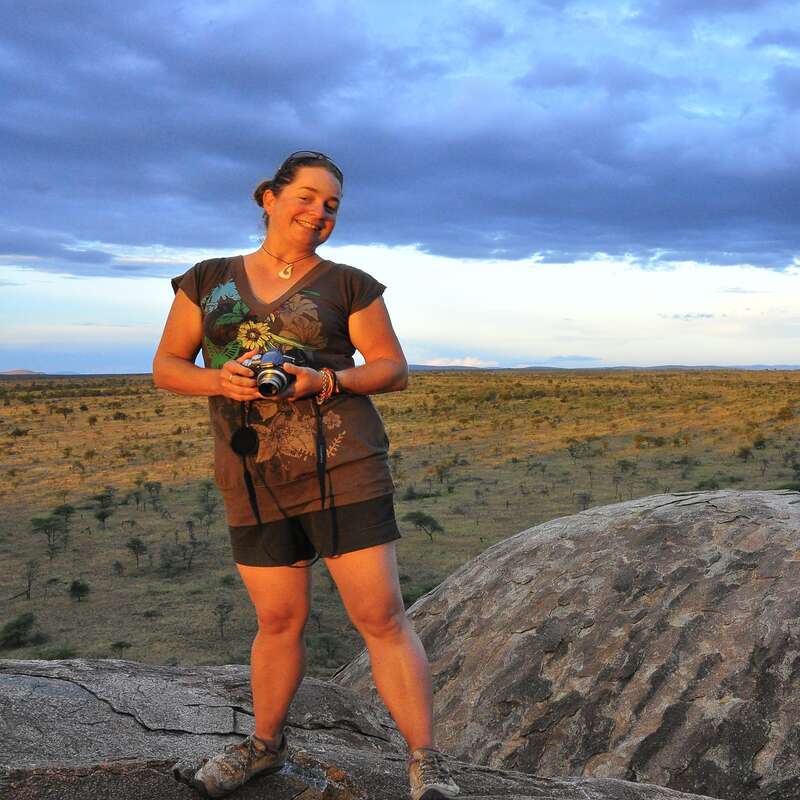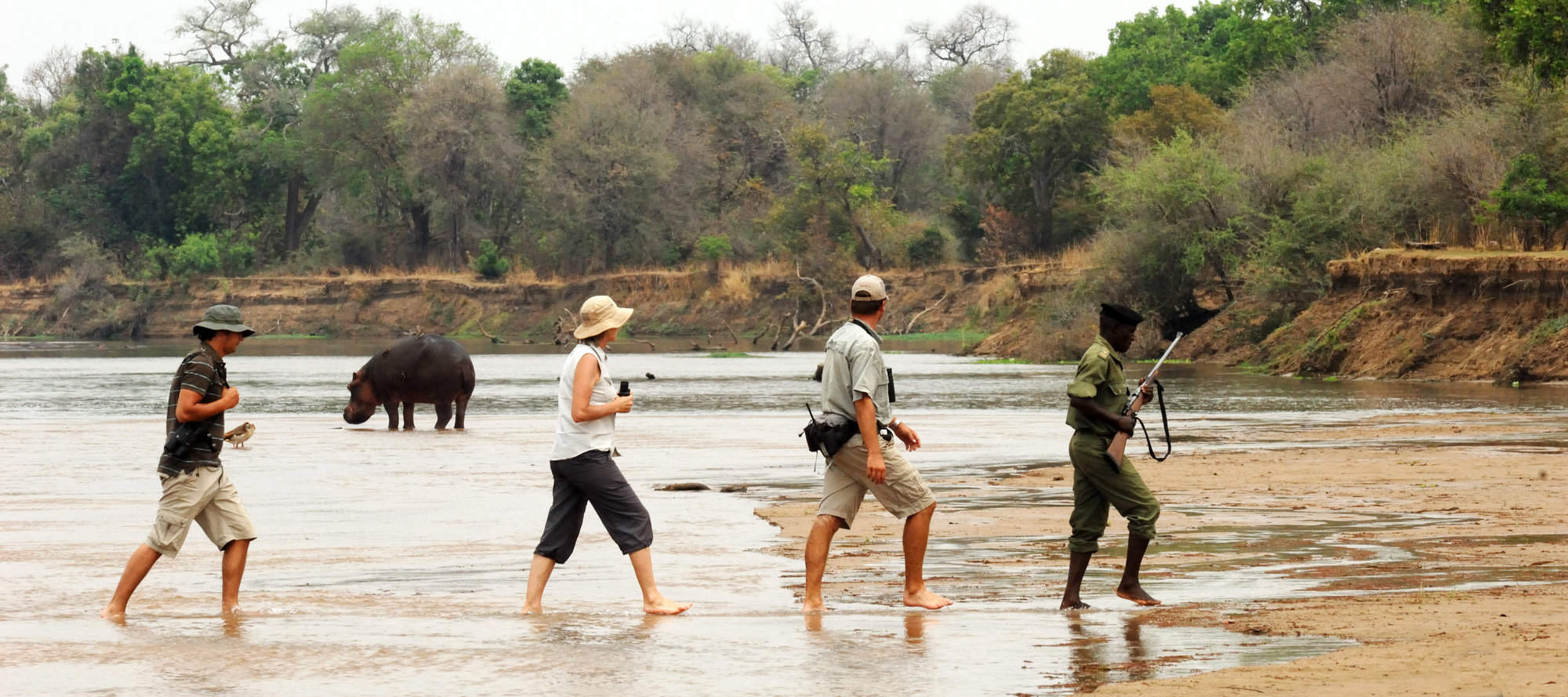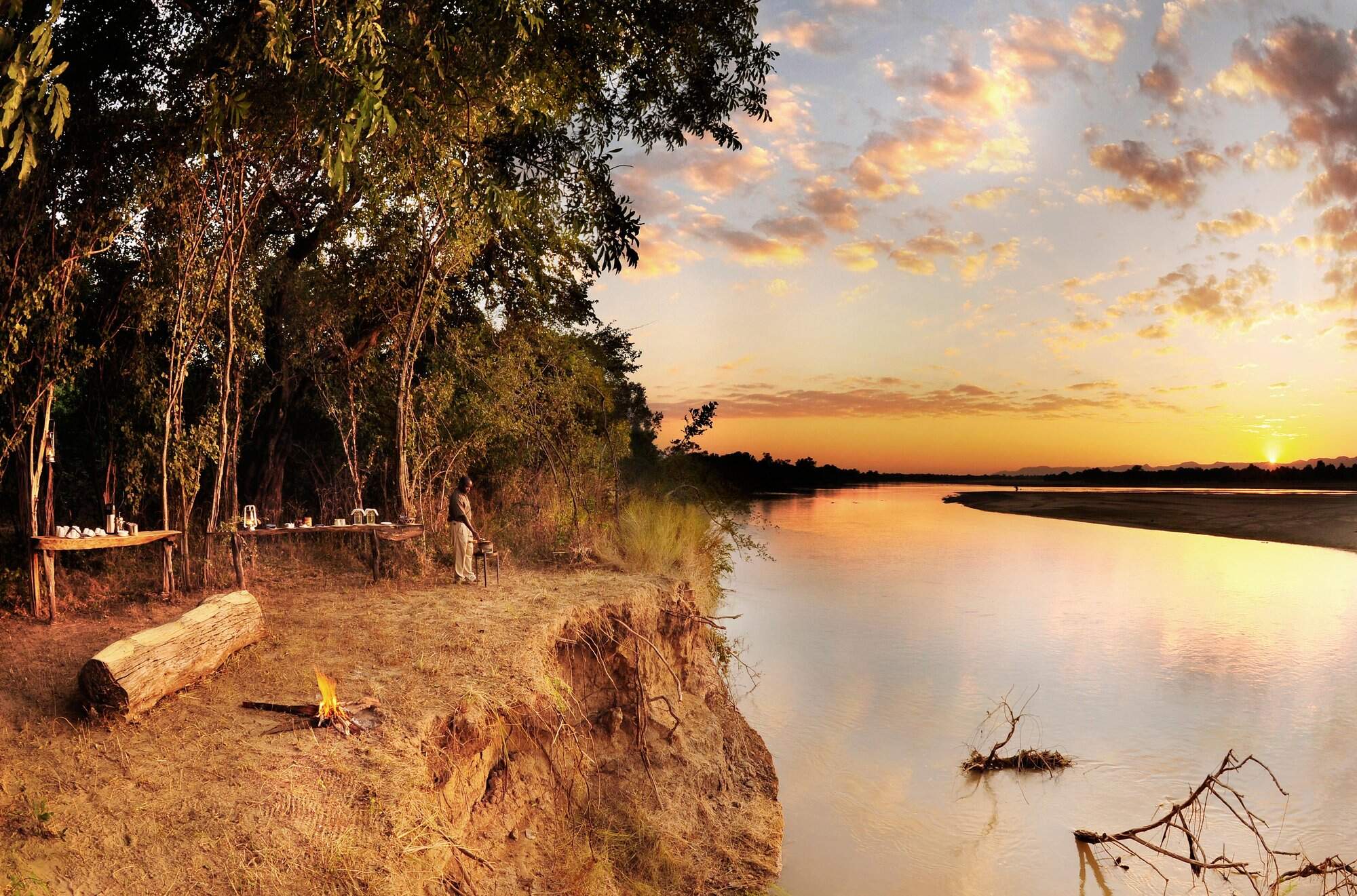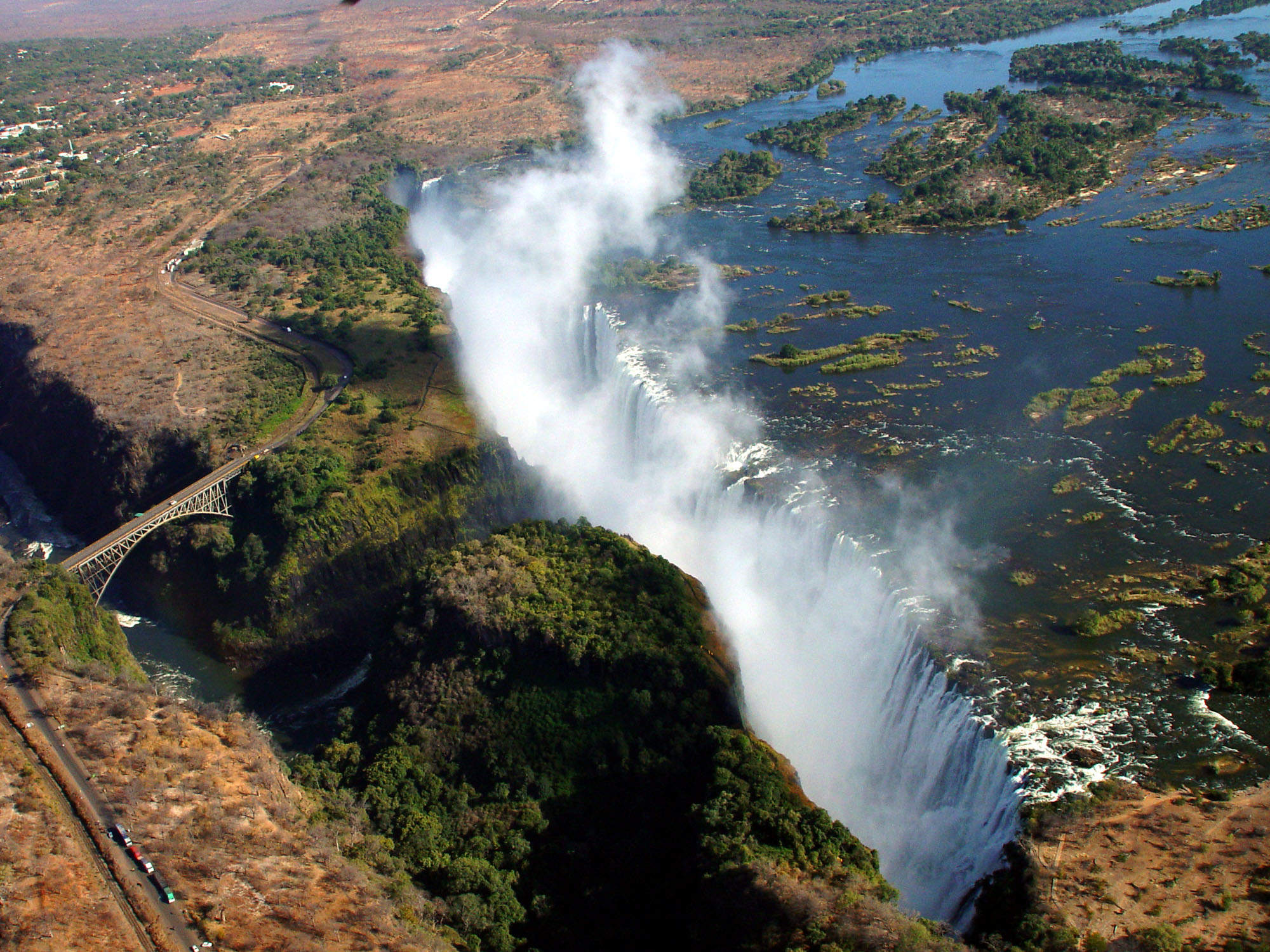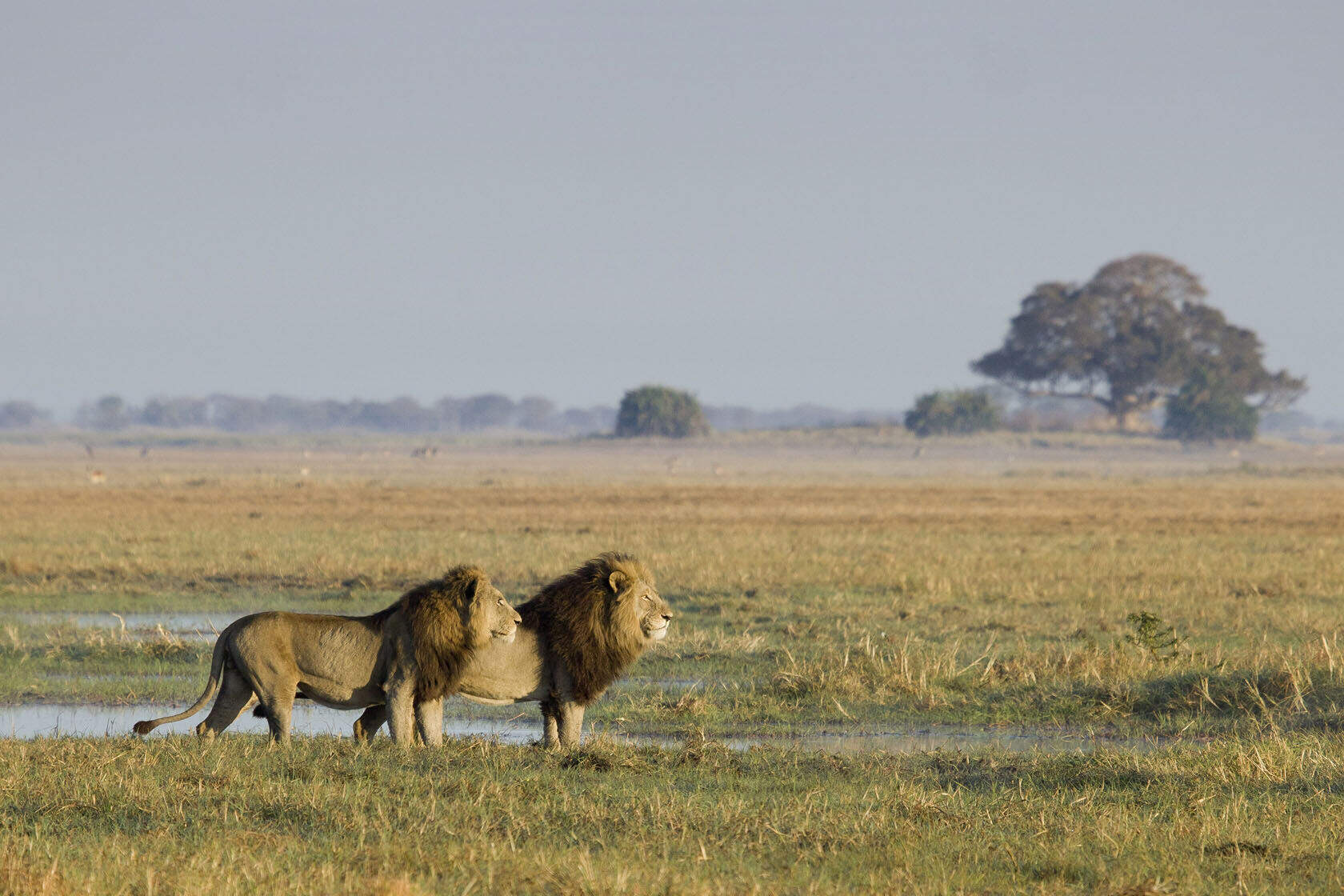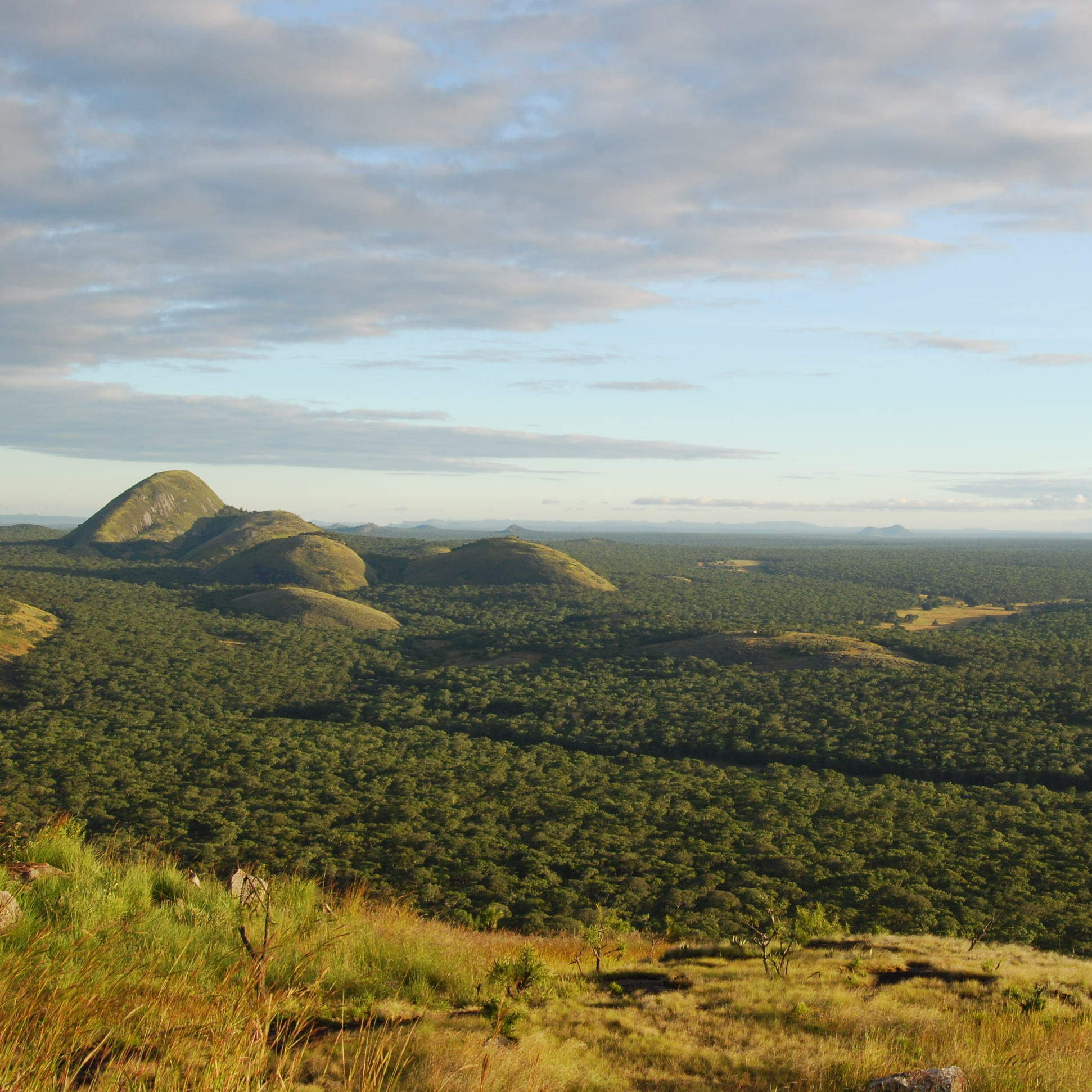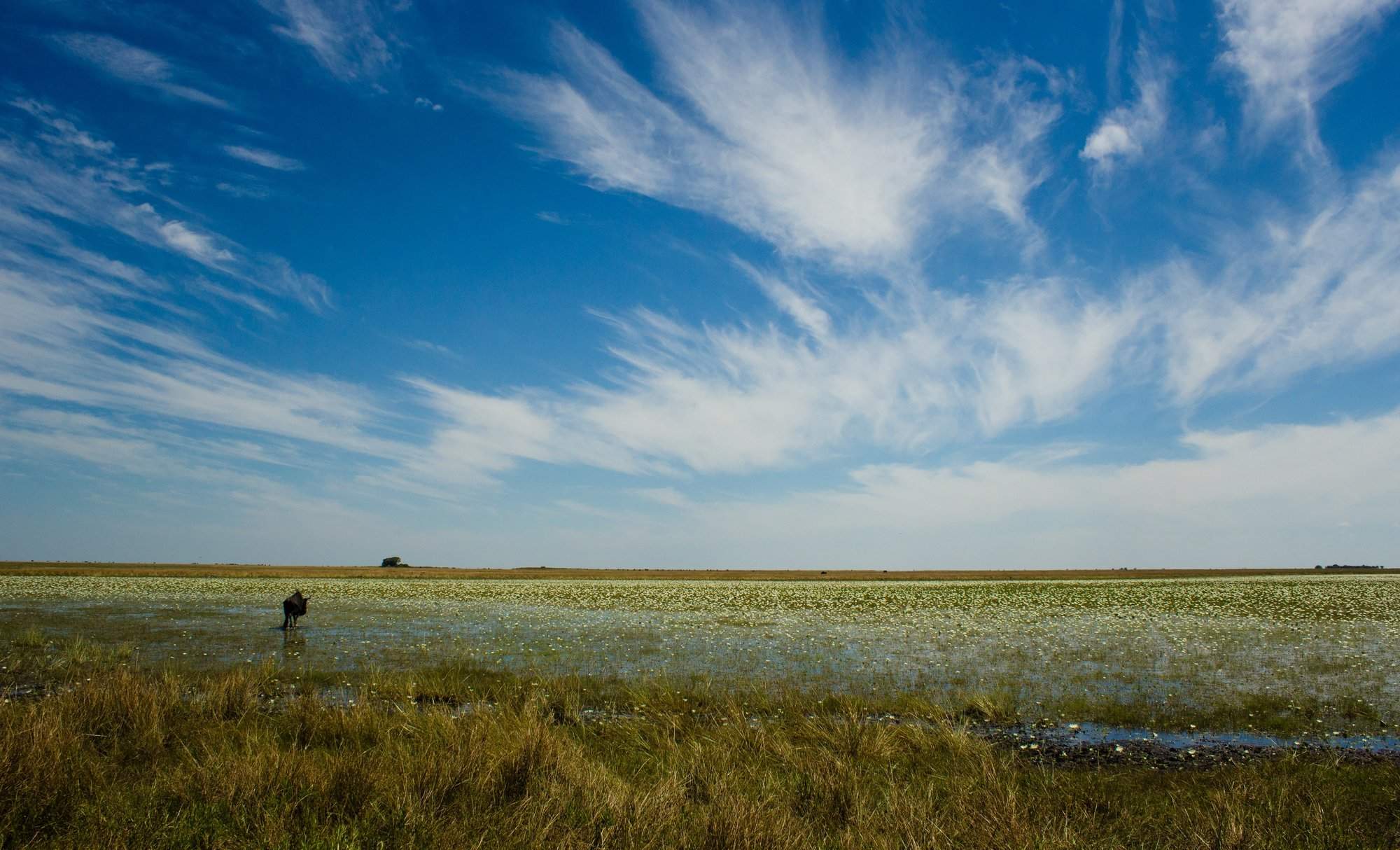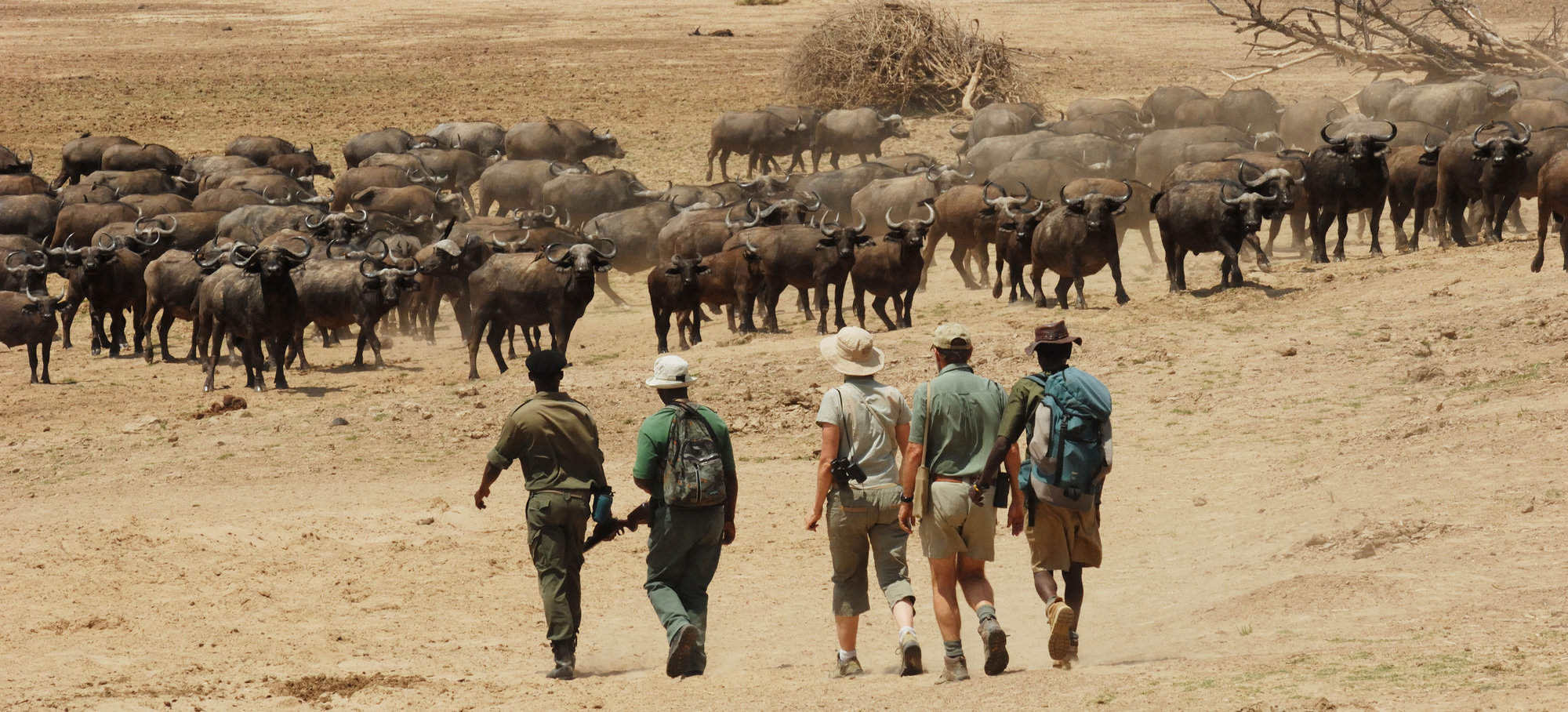Takwela Camp: Our full report
Offering game drives as well as walking safaris in Zambia's North Luangwa, Takwela Camp opened in July 2019.
Before this, most of the camps in the park focused largely on walking. While this has always ensured a top-class walking-only experience, it meant that options for people interested in a more varied safari experience were limited.Takwela is both very simple and rustic, but with a good level of comfort and plenty of character, and constructed in a very similar style to its sister camp in the North Luangwa, Mwaleshi. We last visited the area in October 2022, and we loved the location, on the banks of the confluence of the Luangwa and Mwaleshi rivers.
Built in 2019, the camp initially had just two chalets, but two more were added in 2020. With a total of just eight beds, it remains an intimate and personal camp, one of the smallest in Zambia. It is managed by the head guide, Alex, a long-standing member of the Remote Africa team.
Takwela’s four chalets are open-fronted and spacious, allowing for a cooling breeze, with polished stone floors that are cool underfoot, and canvas fronts that can be rolled down for the night. Each chalet has a small veranda with a built-in cushioned couch, and sunloungers positioned for optimum views over the river.
Three of the chalets have two double beds whilst the fourth has a king-size bed. Large mosquito nets are draped around the beds, with small floor mats lie each side, and bedside tables set with solar-powered bedside lights and a small fan, along with a whistle and a flask of drinking water. To one side is a dressing area, with wooden shelves and space to hang clothes, plus additional shelving by the bathroom.
The en-suite bathrooms are largely open air, enclosed by reed walls, with a flushing toilet and twin sinks. An open-air shower has hot and cold running water, with a view out behind the camp. Shampoo, conditioner, body wash and insect repellent are all provided, as are kikois. These are particularly useful in the warmer months, when they can be wettened and laid over you during siesta time – a simple but very effective way to stay cool.
Throughout the chalets a colour scheme of turquoise and light blue boldly complements natural tones to give a smart yet cooling feeling. The same colours, enhanced by more polished floors, feature in the camp’s main area or chitenge, a U-shaped structure with high thatched ceilings supported by a combination of tall poles and natural trees. Along with a bar, a couple of seating areas and a charging station, you’ll find a small library, with lunch usually served here in the shade.
Behind the camp, a small lagoon attracts a variety of wildlife. On our last visit, we saw bushbuck, puku, kudu, warthog and elephants, the majority of which then wandered through camp browsing after they had finished drinking.
On the activity front, guests at Takwela can take part in both walking safaris and day and night game drives, with a very high standard of guiding. The camp is set in an area of the park with a varied environment: riverside plains blend with acacia, sausage tree and mahogany woodland, along with tracts of mopane woodland. As the camp becomes more established, so the wildlife is slowly becoming settled. Although elephants and leopard are less habituated due to the very small human footprint and extremely low numbers of visitors to the area, there are great sightings to be had. During our stay, lion, leopard, wild dog, plenty of plains game and even bushpig and aardvark were seen. The area around the camp is great for birders too, with numerous species to spot.
The North Luangwa National Park is also home to Zambia’s only population of black rhino. A huge level of conservation work to protect this threatened species has been conducted by the Frankfurt Zoological Society (FZS), together with the North Luangwa Conservation Programme (NLCP). While guests are very unlikely to see the rhino, it’s worth knowing that Remote Africa Safaris donates a percentage of each guests’ nightly rate to the NLCP. So just by staying at Takwela, you’re contributing to this invaluable work.
For a more varied safari, consider combining a stay with Takwela's sister camps, Mwaleshi, in the North Park and Tafika, Chikoko and Big Lagoon Camp in the South Luangwa National Park, whose standard of guiding is equally high.
It is possible to combine a stay between Takwela and Mwaleshi, covering the distance between the two on foot while your luggage is transferred by vehicle. With a mid-way stop for refreshments, the walk takes about four to five hours.
Alternatively, a safari combining both the North and South Luangwa allows you to experience both national parks; the 15-minute flight between the two parks makes for quick and easy transfers.
Geographics
- Location
- North Luangwa National Park, Zambia
- Ideal length of stay
- We'd recommend a stay of at least 3 or 4 nights in the North Luangwa - whether that's just at Takwela, or a stay combining its sister camp Mwaleshi also.
- Directions
- Guests fly to Mwaleshi, the airstrip that serves the North Luangwa National Park, either from Mfuwe or Lukuzi, the airstrip next to Tafika, and from Mwaleshi will be transferred by vehicle to Takwela. This is approximately a 45-minute drive from the airstrip, and may include a river crossing.
- Accessible by
- Fly-and-Transfer
Food & drink
- Usual board basis
- Full Board & Activities
- Food quality
- Meals at Takwela are served either in the main chitenje or on the banks of the river. The food on our last visit, in October 2022, was delicious and very well presented, which is what we’ve come to expect from the Remote Africa camps. With sufficient notice, the camp can cater to a range of dietary requests.
Your day at Takwela will usually start with a light breakfast around the campfire before your morning walk .
This is followed by lunch at about 12.00pm, on your return to camp.
We were served a buffet with white and brown freshly baked loaves, chicken sosaties, chickpea and aubergine tagine, pizza, fresh salad from the Tafika gardens, pasta salad, carrot salad and a selection of pickles, dressings and sauces. Dessert was a light and creamy custard tart.
After a relaxing siesta, afternoon tea with freshly baked cake is offered around 3–3.30pm, depending on the time of year and the daily temperatures. You then head out for the afternoon activity and sundowners, before making your way back to camp for a full three-course dinner, served at around 7.30pm. - Dining style
- Group Meals
- Dining locations
- Indoor and Outdoor Dining
- Drinks included
- Flasks of filtered water are provided in the chalets and personal, refillable water bottles are provided for drinking water throughout the day. Soft drinks, house wine and some local spirits are included in the cost of your stay.
Children
- Attitude towards children
- Minimum age 12 years
- Property’s age restrictions
- Children under 12 are not allowed to take part in walking safaris.
- Special activities & services
- None
- Equipment
- None
- Generally recommended for children
- We endorse Takwela's restriction to children above the age of 12, and recommend it only for mature children who have had previous walking experience in Africa.
- Notes
- Takwela is open to the bush and the river, with wild animals in and around camp, so parents or guardians need to be constantly aware of their children's whereabouts. They should note, too, that there were a few tsetse flies about when we last visited, as children tend to react more seriously than adults to the bites.
Our travellers’ wildlife sightings from Takwela Camp
Since mid-2018, many of our travellers who stayed at Takwela Camp have kindly recorded their wildlife sightings and shared them with us. The results are below. Click an animal to see more, and here to see more on our methodology.

100% success

100% success

82% success

73% success

71% success

56% success

50% success

31% success

7% success

0% success

0% success

0% success

0% success

0% success

0% success
Communications
- Power supply notes
- Takwela runs on solar power. In the event of no sun for a protracted period of time, there is a back-up generator to charge the batteries.
- Communications
- There is no cellphone reception although the camp is in constant radio contact with its main camp, Tafika.
- TV & radio
- None
- Water supply
- Borehole
- Water supply notes
- The bathrooms at Takwela have plumbed taps and basins, hot and cold showers, and flush toilets.
Sustainability
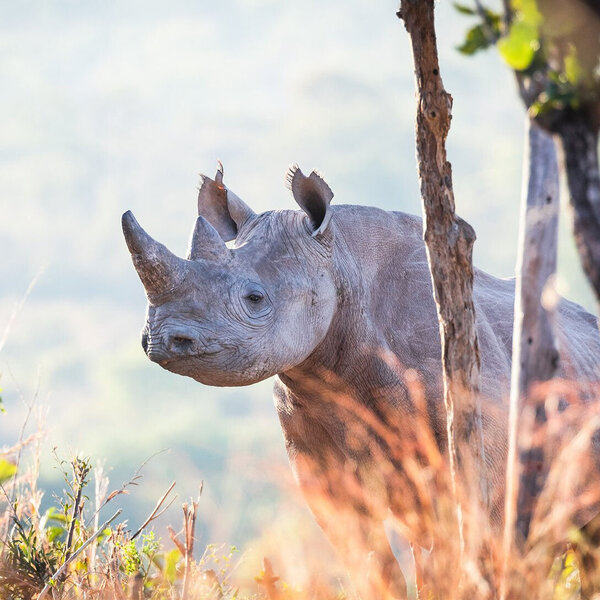
Saving rhino populations in the North Luangwa
Home to Zambia’s only black rhino population, the North Luangwa National Park is overseen by the North Luangwa Conservation Programme (NLCP), which is part of the Frankfurt Zoological Society (FZS). The programme, set up in 1986 to help stop heavy poaching in the park, has made huge inroads into the conservation efforts here, with poaching reduced and wildlife populations increasing.
Black rhinos were introduced into the park in 2003 and Remote Africa Safaris have been constant supporters of the NLCP, donating a portion of profits to the programme yearly.
The NLCP also works alongside the Zambian government to protect valuable water resources in the area. The North Luangwa National Park incorporates the source of four of the six perennial tributaries of the Luangwa River, a water source for thousands of people along its banks.
In addition, the programme promotes diversification by working with local farmers to instill best practice in conservation, supporting community horticulture, and training beekeepers.
Photo credit: Mana Meadows / FZS.
See more great sustainability projects in Zambia
Health & safety
- Malarial protection recommended
- Yes
- Medical care
- Staff are trained in first aid, and first-aid kits are located in the office and in all vehicles. The closest doctor is in Mfuwe – a 50-minute flight from Mwaleshi Airstrip (a 45-minute drive from Takwela), then a road transfer of approximately 25 minutes.
- Dangerous animals
- High Risk
- Security measures
- Both your guide and the camp staff stay in camp with you, and guests are escorted to their chalets in the hours of darkness.
- Fire safety
- There are fire extinguishers in all common areas and sand buckets outside each chalet.
Activities
4WD Safari
Birdwatching
Guided walking safari
Night drive
Extras
- Disabled access
- On Request
- Money
- There is a secure box in the staff quarters if you wish to leave valuables there. No exchange facilities are provided.
- Accepted payment on location
- No money is accepted at Takwela. Any necessary payments may be made at Tafika, which accepts cash in UK pounds, US dollars, euros and Zambian kwacha. Visa and Mastercard are also accepted at Tafika, with a small surcharge.
Other lodges in North Luangwa National Park
Alternative places to stay in this same area.
